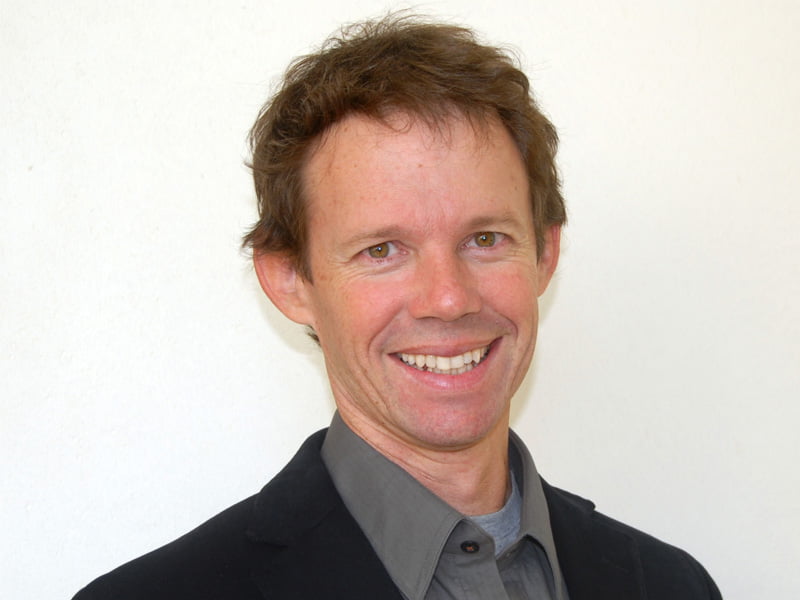Given two-step authentication is one of the key security layers used by the likes of Google, Apple and some of the world’ major banks, it must work, right? Chris Drake, founder and manager of CryptoPhoto, begs to differ.
Instead, he reckons two-step authentication is the “bane of [his] life”.
“Everywhere you go people say, ‘Switch on two-step authentication’. It’s just rubbish. The big problem that is causing nine out 10 break-ins is social engineering and people getting tricked, Mr Drake said.

“It’s not the computer system’s fault.”
“Two-factor authentication is a way to solve a computer system issue; it has nothing to do with the person. Even though you might deploy Google authenticator, for instance, it doesn’t stop the person on the phone saying, ‘I’m from your bank and you need to provide us your pin code’ or some other random scam that has to do with stealing your code.”
Mr Drake has spent the last 35 years in the security industry, having worked for organisations including IBM and the Australian Air Force.
These days the Noosa-based entrepreneur is trying to break into the cybersecurity market with his patented Authentication Assurance Level 3-cleared technology, CryptoPhoto, a photo-matching authentication solution designed to protect users from “modern day attacks” – including social engineering, phishing, and scams online, over the phone, and in person.
Mr Drake recently participated in the Austrade Landing Pad program in Tel Aviv, where he spent three months commercialising CryptoPhoto technology, while immersing himself in the city’s local startup network.
The environment in Tel Aviv, he says, is more responsive to new ideas than Australia’s capital cities.
“The difficulty about Australia trying to match Israel is that everything happens in Tel Aviv. It’s a city you can literally jump on a bike every evening and go to a startup event located at some innovation hub rooftop. It’s that easy.”
“In Australia, we’ve got Melbourne, Sydney, and Brisbane all carrying on about who’s the best, and things are just spread out,” he said.
“The [Australian] ecosystem is crippled by everyone bickering with one another and just by how big the country is.
“Not to mention, the Australian and Israeli attitude is very different. In Israel, if you say to someone, ‘I do something awesome’ they come to you and say, ‘How can we install it?’, whereas if you say that to someone in Australia they call you a wanker for showing off.”
Mr Drake’s time in Tel Aviv also saw CryptoPhoto win the cyber and security category at the prestigious Tel Aviv University Innovation Challenge.
The authentication tool also grabbed the attention of security vendor Checkpoint, which now plans to integrate CryptoPhoto into its solutions, as well as an American bank, IT consulting firm Tata Consultancy Service and French-based bank Société Générale.
But being in Tel Aviv didn’t just attract the attention of foreign customers. Interestingly, it caught the eyes of Australian companies, too.
“The reason why I chose to go overseas in the first place was because the Australian government kept flying my customers to Tel Aviv to buy my solution, so I thought it’s just too hard to fight it.
“I was literally in the same building where the Australian delegates were and they had come looking for cybersecurity solutions.
“I literally walked around my desk to theirs and said, ‘Here’s my solution and by the way, we’re from Queensland’.”
Mr Drake said there are now some 400 websites using CryptoPhoto.
While Australia’s startup scene may not be at the same level as Israel’s, Mr Drake said all levels of government were trying to create appropriate support for Australian startups.
He points to how at the local council runs hackathons and offers facilities to startups, while the Queensland government runs initiatives such as Testing Within Government (TWiG), which lets startups to work closely with the state government on a number of business problems.
Meanwhile, Mr Drake said at federal level “they give away money”, some of which CryptoPhoto received under an Accelerating Commercialisation grant.
Despite the most interest for the technology coming from overseas, Mr Drake said he would still prefers to keep headquarters on the Sunshine Coast, and to open subsidiaries in places like the US.
“I believe it gives us the opportunity to attract quality talent who understand that life probably is more important than work.
“The problem you have if you’re based in Melbourne or Sydney is trying to keep the really clever people away from the banks because they’re going to kill you every time with wages.
“In my opinion, if you’re smart enough to know you need to sort out your life and work in the same place, then that’s the kind of forward-thinking skillful person I want to have.
“And having them here will keep them from being stolen by someone like [a big bank].”
Do you know more? Contact James Riley via Email.

